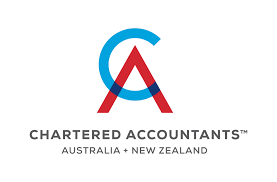Tips for managing debt in your small business

Running a small business requires taking some risks. Debt is one of those risks, but it is also a positive tool for small business that is usually necessary in order to fund your growth. However, when circumstances change and your debt levels grow, it can keep you up at night. It is important to act early and put a plan in place to manage it.
Here are some useful tips from Xero to help you take control of your debts.
Understand your situation and take action
If you’re facing increasing debt, take action instead of hoping for the best. Stay sharp and aware of your situation. Use good quality accounting software (like Xero!) to keep a close eye on your outstanding debt and monthly payments. This information should be at your fingertips at all times. After that, your priorities will depend on the type of business you run and how flexible your suppliers are willing to be. The following payment priorities are suggestions, but the actual order is for you to decide:
- Payroll
If you don’t pay your employees' wages on time you may be penalised for this. You may be able to renegotiate contracts with some staff, but that's likely to affect their morale. - Suppliers and business partners
Avoid losing valuable goodwill with your most loyal suppliers and business partners. - Aged payables (60 days or more)
If you don’t pay, your credit score will be impacted, which will affect your ability to borrow money in the future. - Bills
Outgoing costs such as rent and utility bills need to be paid to keep the lights on! And again, not paying these could affect your credit rating. - Secured debts
If you run your business as a sole proprietor or partnership, you might be held personally liable for debts, and creditors could try to take your assets. This is one good reason to form a corporation or limited liability company. - Insurance
Especially professional indemnity and public liability cover. - Credit cards
Avoid penalties or interest charges as these can pile up quickly.
Renegotiate bank loan terms
You may be able to renegotiate your bank loan so it's spread over a longer term, to reduce the interest payments and also the monthly repayment cost. The bank may want to charge a higher rate due to the perceived increased risk of default, so you won't save as much money as you might like. Even so, this can give you some breathing space.
Discuss more favorable payment terms
Talk to all your creditors. Explain the situation and make it clear you have a comprehensive plan for resolving it. Stay positive – tell them you want to pay in full but need to renegotiate terms for that to happen. They should understand that it's in their interest to accommodate your request. After all, if your business fails they'll get nothing back. Be proactive here. If you approach your creditors before they start chasing you for missed payments, they're more likely to take you seriously and agree to your terms.
Increase your revenue
Easier said than done, of course, but there are ways you can boost short-term revenue. By taking action, you could reduce your debt payments enough to get you back on track.
- Offer your customers mark-downs or reduced prices
Discounts for fast payment can help improve your cash flow. - Get to know your customers better
Get their feedback on your business so you can tailor what you sell to meet their needs better – and maybe charge a mark-up for doing so. - Meet with your accountant, financial planner or banker
Share your business plans and see if they can introduce you to some of their other clients, perhaps in exchange for a small finder’s fee.
Reduce business costs: 5 tips to consider
Think about where you can cut costs. Use accounting software to list your largest outgoings and see where you can make reductions. For example:
- Reduce the amount of space you rent or lease, especially if you're not using it all.
- Consider making some employees redundant, but be careful about hiring too many short-term consultants instead – as that can work out to be more expensive.
- Can you combine your business loans into one payment that will reduce monthly costs and not adversely affect your credit score? Talk to debt consolidation companies about this, but read the small print carefully.
- Consider refinancing, if your credit record will allow it.
- Negotiate with suppliers. Don’t be shy about asking for discounts, especially if you buy in bulk or place regular large orders and have a good payment history.
Be intelligent about where you cut costs
You might feel like you need to cut costs to the bone when debt looms over you, but sometimes it can be counter-productive. Don't assume cutting costs will automatically save you money. It's where and how you cut costs that matters.
For example, if you slash your marketing budget you might save a lot of money in the short term, but you will lose potential new clients. Cut your shop floor space and you'll save rent, but reduce the range of stock you can display to customers. Make some of your staff redundant, and you won't be able to handle any larger contracts that come your way.
Cut when you need to, but do it sensibly. Before you start, use accounting software to forecast the financial impacts of different cost-cutting options. Trim the fat out of your business, not the muscle.
Raise funds to pay your debts
This will be difficult. A new business that's free from debt is a better investment proposition than one that's having financial problems. Still, you have choices:
- Borrow from friends or family
This can be awkward and could strain your relationships, but you may get favorable rates. - Liquidate assets
Creditors are likely to accept this because they'll want to be paid at least something, and this way they'll get a better deal than if you went bankrupt. Their only other option might be litigation, and that's timely and expensive. - Look for new investors
Be aware that any new money will be expensive for you. Investors who might have wanted 5% of your new business in exchange for their money might want 30% now you're in difficulties.
Be realistic about your options
More than a third of business owners are less than comfortable about their levels of debt, so you're not alone. Do everything you can to keep your business running, and talk to local business advisors to see what help they can offer.
With luck and perseverance, you'll be able to turn your business around. But if things don't improve, you may have to consider closing your business and declaring bankruptcy. That would hurt, of course, but it doesn't have to be the end of your dreams.
Many entrepreneurs fail in business at least once before finding a successful strategy. And as long as you learn from the experience, you may be able to bounce back stronger next time.
All Accounted For can help you assess the situation and create a repayment plan. This will include your business priorities and your obligations such as payroll, suppliers, tax, insurance and other bills.
So, if you're in debt, come and talk to us about your options.
Original article link: https://www.xero.com/nz/resources/small-business-guides/business-management/manage-debt/













